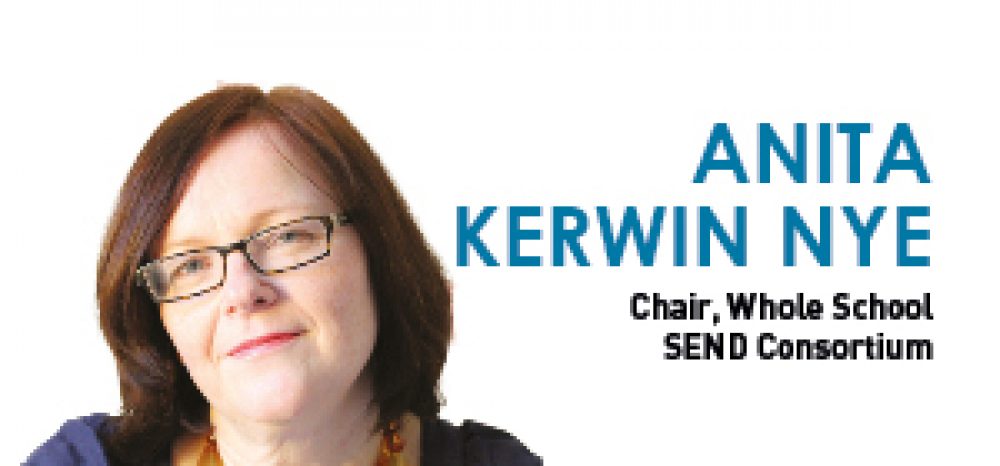There have been a few low points, but champions for pupils with SEND still emerged this year, says Anita Kerwin Nye.
Many of the same variables have impacted learners with special needs in 2016 as other children: system restructure; the downplaying of lower-level and non EBacc qualifications; teacher recruitment and austerity.
But for young people with special educational needs and disabilities (SEND) these issues can be magnified.
In February, think tank LKMCo and the Joseph Rowntree Foundation made the case that poverty is both a cause and effect of having a family member with SEND.
Meanwhile, the progress gap between children with SEND and their peers remains both high and highly variable depending on location. Ofsted’s most recent annual report highlighted that “the proportion of pupils in receipt of SEN support who make the expected level of progress varies between 37 and 74 per cent across local authority areas”.
The summer announcement on grammar schools and subsequent lack of mention of SEND in the Schools that Work for Everyone green paper did little to reassure on this front, raising significant concerns about the place for children with SEND in an even more selective system.
SEND has become a headline issue rather than an also-ran
This year marked the half-way point of the SEND reforms arising from the Children and Families Act, whereby statements are being transferred to Education and Health Care Plans (EHCPs). The first set of Ofsted and CQC SEND reviews of local authorities reveal many strengths, but also several local authorities that urgently need to improve.
Special school provision remains exceptional – 93 per cent of maintained special schools are rated good or outstanding. However, significant concerns have been raised about the capacity of these schools to meet the needs of the increasing number of children with severe and complex needs, often reflecting improvements in neonatal care. Marc Rowland of the National Education Trust recently argued in Schools Week for improvements in recruiting and training staff to work in special schools, where recruitment challenges are even more acute than across the mainstream sector.
Inclusion has – perhaps more than ever this year – been a question of debate: not just how, but sometimes even whether to include. Concerns have also grown about exclusion by indirect means, with parents not uncommonly reporting being told to apply to another school better equipped for SEND provision. More disturbingly, perhaps, Jarlath O’Brien highlighted the illegal use of fixed-term exclusions in his recent book, Don’t Send Him in Tomorrow.
On the upside, there are great examples of where inclusion is working. Most often these are schools that, rather than assuming they hold all of the answers, are outward facing, work with humility and engage critically with developments in practice. They see parental contribution as an asset rather than an inconvenience, and they take time to define what high expectations really look like for each child, rather than setting blanket benchmarks and targets.
There are great examples of inclusion working
There are other green shoots of change. Remarkable champions have emerged: O’Brien’s above-mentioned book should be required reading for all aspiring school leaders, while Nancy Gedge’s Inclusion for Primary Teachers offers invaluable practical help for all primary NQTs. Across education media – in a large part championed by Schools Week – SEND has become a headline issue rather than an also-ran.
The Whole School SEND Consortium, launched in May 2016, has more than 500 schools committed to improving their SEND provision. Including several large academy trusts, teaching schools and networks of schools, with third-sector bodies such as the National Association for Special Educational Needs (NASEN), the consortium is focusing on practical support for schools. Working with Simon Knight and the National Education Trust to develop support for teachers at classroom level, and with Rob Webster at UCL to support schools in teaching assistant deployment, the consortium – hosted by the London Leadership Strategy – is building capacity into schools across the country.
There are significant challenges to ensuring that pupils with SEND are visible and included in the schools within their communities. There is no reason that many shouldn’t be achieving the same academic success as their peers. How we support our learners with SEND should be the marker of how we run our education system as a whole.
Anita Kerwin-Nye is chair of the Whole School SEND Consortium







Your thoughts